 |
| Spain values a comprehensive education, is open to the world, encourages critical thinking, and nurtures creativity. (Source: BeEasy) |
Open, international and approachable
Spain has a long tradition of education, where the academic philosophy is not only about acquiring knowledge but also about nurturing the soul. People here value a comprehensive education, open to the world but still maintain its characteristics: encouraging critical thinking, nurturing creativity. Students are educated in an environment that emphasizes humanity, learning to understand themselves – and from there understand others.
Education is built on the foundation of freedom – both in the curriculum and in the way of thinking. Universities often design programs that combine theory and practice, focusing on giving students autonomy in choosing subjects and building personal paths. This creates conditions for learners to develop according to their abilities and passions, not just “passing subjects and classes”.
Another notable highlight is the close connection between education and cultural and artistic life. It is no coincidence that the fields of tourism, humanities, art, architecture, communication and cultural studies here always rank high in international rankings. Students can study art history in the lecture hall while admiring masterpieces by Velázquez, Goya or Picasso in famous museums in Madrid or Barcelona.
In addition, the community spirit, friendliness and open lifestyle also contribute to creating a pleasant and close learning environment. Education does not put heavy pressure but aims at sustainable development - both in terms of intelligence, spirit and life skills. In the land of bulls, people learn to grow up, to understand, to connect with the world - a very humane orientation in the context of global education that increasingly needs true global citizens.
In addition, Spain is one of the pioneering countries in the European higher education system according to the Bologna framework, which helps degrees to be highly compatible and widely recognized globally. With more than 80 public and private universities, including leading institutions such as Complutense University of Madrid, University of Barcelona, Universidad Autónoma de Madrid, etc., international students, including Vietnamese students, have access to a modern, high-quality education system, diverse fields of study and attractive scholarship opportunities.
It is the blend of academics and culture that has created the unique identity of the education system of the bullfighting country – a very different attraction compared to other major education systems in the world. And it is also from these “very Spanish” features that this place has become a popular destination for many Vietnamese students.
When tuition is no longer a barrier
Compared to many other European countries, Spain is considered one of the most affordable study abroad destinations for tuition and living expenses. Tuition fees at public universities typically range from 700 to 2,500 Euros per year for undergraduate degrees, and from 1,000 to 4,000 Euros for master's programs, depending on the field of study and region. This is a very competitive fee compared to countries such as the UK, France or Germany - where tuition fees for international students can be many times higher.
Not only that, the cost of living in big cities like Madrid, Barcelona or Valencia is also acceptable, averaging around 600-900 Euros per month.
With reasonable costs, guaranteed training quality and a dynamic living environment, the land of bulls has become a potential choice for those who wish to pursue an academic path in Europe without too much financial pressure.
 |
| Compared to many other European countries, Spain has affordable tuition and living costs. (Source: HTL) |
Where knowledge guides and friendship blossoms
Vietnam and Spain established diplomatic relations in 1977, but it was not until the early years of the 21st century that educational and training cooperation began to be strengthened. In particular, since the two countries signed the Agreement on Cultural, Educational and Scientific Cooperation (in 2004), the number of Vietnamese students studying in Spain as well as Spanish students coming to Vietnam to study and research has increased significantly.
Spain is currently one of the countries with hundreds of Vietnamese students studying. Some major universities such as Hanoi University, Ho Chi Minh City University of Technology, and Da Nang University have welcomed students from the land of bulls under bilateral exchange programs or international semesters. This is part of the effort to promote the internationalization of higher education in our country, while creating conditions for domestic students to access European academic and cultural values.
One of the highlights of educational cooperation between the two countries is the active participation of Vietnamese universities in academic exchanges. For example, Hanoi University has collaborated with the Cervantes Institute to organize an international scientific conference on Spanish language teaching, marking 20 years of teaching this language in Vietnam.
Vietnam National University, Hanoi and the University of Valladolid have signed cooperation agreements on training and research. The two sides implement dual master's degree training programs according to the 1+1 model, in which students study one year in Vietnam and one year in Spain. Vietnam National University, Hanoi also expands cooperation with leading universities in Madrid and Barcelona for cooperation activities, student and lecturer exchanges and scientific research.
 |
| A delegation from Nha Trang University participated in a training and study trip on digital education in Spain from February 24 to 28. (Source: Nha Trang University) |
In addition, international organizations such as AECID and the Cervantes Institute have made important contributions to promoting the Spanish language and Ibero culture in Vietnam. AECID supports sustainable development projects, scholarships, educational and cultural exchanges and language teacher training. Meanwhile, the Cervantes Institute organizes Spanish language courses, cultural and academic events and provides international DELE certificates. These activities have brought Spanish closer to Vietnamese learners, while enhancing cultural understanding between the two countries.
These activities have contributed to bringing Spanish - the world's second most popular language - closer to Vietnamese youth, and promoting understanding between Asian and European cultures.
In the current trend of globalization and educational innovation, student exchange programs between Vietnam and Spain not only expand learning opportunities, but also contribute to creating a generation of global citizens - knowledgeable, creative and responsible to the international community.
Source: https://baoquocte.vn/tri-thuc-khong-bien-gioi-ket-noi-viet-nam-va-tay-ban-nha-310544.html


![[Photo] Prime Minister Pham Minh Chinh chairs conference on anti-smuggling, trade fraud, and counterfeit goods](https://vphoto.vietnam.vn/thumb/1200x675/vietnam/resource/IMAGE/2025/5/14/6cd67667e99e4248b7d4f587fd21e37c)







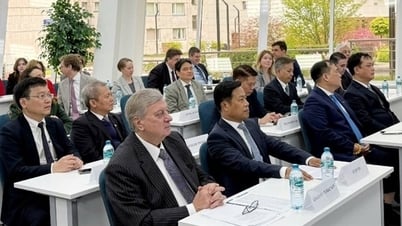





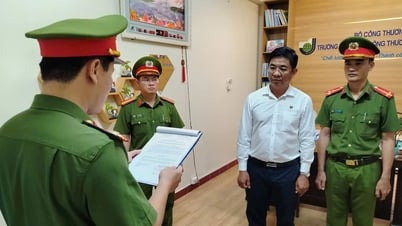







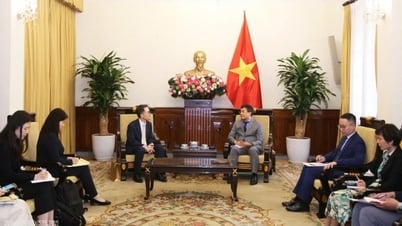
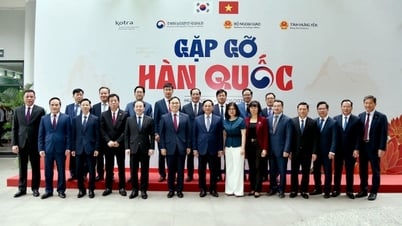
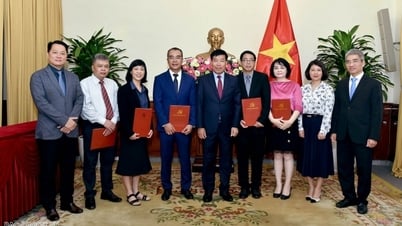
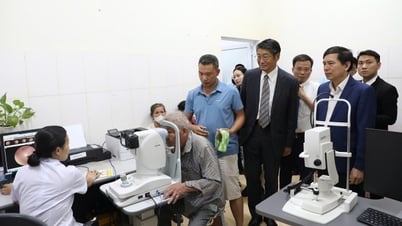


































































Comment (0)